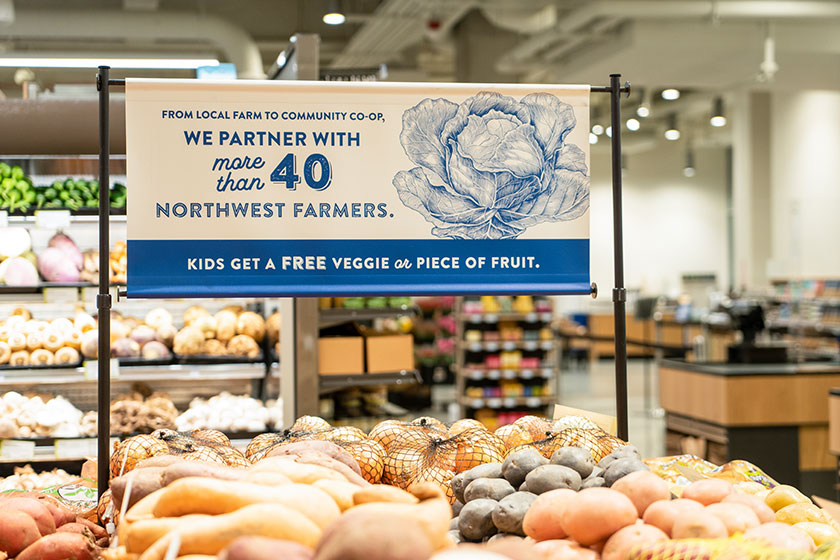PCC Community Markets has issued its annual Co-op Purposes Report provided in service to the co-op’s membership, which grew by 13% in 2021 to more than 102,000 members by year’s end, said the Seattle-based co-op.
The member-owned and -operated co-op with 16 stores serving the Puget Sound area, says its mission is “to ensure good food nourishes the communities it serves while cultivating vibrant, local, organic food systems.”
“After a second full year of social, economic and environmental upheaval stemming from the global pandemic and persistent societal inequities, it is comforting to reflect on the common purpose that unites our co-op: PCC’s vision to inspire and advance the health and well-being of people, their communities and our planet,” Krish Srinivasan, PCC Community Markets CEO, said in a letter introducing the report. “I am deeply committed to transparency with our staff and members. Our Co-op Purposes Report is one element of that work that is in service to our members, providing an overview of our collected mission-related work, accomplishments and impact in 2021.”
PCC is committed to a triple bottom line operating model that balances environmental, social and economic goals while reducing environmental impacts and giving back to its community, said the co-op.
The report outlines key accomplishments and work in progress through the following components:
Impact by the numbers: In 2021, PCC provided 1.5 million meals to local neighborhoods, offered more than 9,000 local products in stores, achieved carbon negative store operations, welcomed more than 7,000 students to its in-person and virtual cooking classes and provided 40 special offers to members valuing more than $300 for each member. These are just some of the key data points marking the co-op’s work last year, according to the co-op.
PCC five-year goals: With input from co-op members, community, vendors and partners, PCC created social and environmental operational goals to help increase the co-op’s sustainability impact in 2017. Each year since, the co-op has shown progress on these goals including work to decrease its energy use, reduce its water waste and provide new organic products, said the co-op.
2021 PCC storytelling: For the past six decades, PCC has shared stories in its publication titled, the Sound Consumer. These stories aim to educate and inspire action connected to the people and movements shaping the co-op, local neighborhoods and the planet. Stories last year covered a wide range of topics from some of the local changemakers making a difference in the Puget Sound to efforts PCC made to support its neighbors through grants to adhering to rigorous green standards in building its stores.
Justice, Equity, Diversity and Inclusion update: PCC continued to build its culture of learning, compassion and inclusion, said the co-op. Through its Justice, Equity, Diversity and Inclusion Committee, it began to focus on three pillars of work — culture, consumer and communities. Some key accomplishments from last year include e-learning on unconscious bias completed by nearly all staff; introducing new approaches to the co-op’s product mix that address existing barriers to working with Black, Indigenous and People of Color vendors; and the co-op redesigned its grant application process and outreach efforts to be more accessible to a greater number of communities, according to the co-op.
Compensation philosophy: For the second year, PCC shared an update on its compensation philosophy and staffing organization. In addition to a deep dive into the organizational structure and benefits overview, PCC shared that over half (53%) of its office staff started their careers at PCC stores and 90% of store management positions have been filled by promotions of internal candidates. In addition, the co-op noted that while the average tenure of food service workers nationally has declined over the past two years to 1.9 years, the average tenure of unionized PCC store staff is 4.38 years — more than double the national average. The average tenure of office and managerial staff at PCC is nearly seven years.
The co-op also provides its yearly financial statement and in 2021 gave more than 65% of pretax earnings to members and the communities it serves. This includes the co-op’s member dividend and support of nonprofits around the Puget Sound area such as Ventures, Washington Farmland Trust and FareStart, reported PCC.

